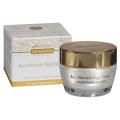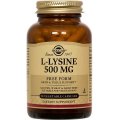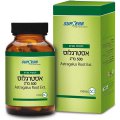Neta - Gastocol – natural anti-reflux formula – prevents heartburn
Acid Reflux – definition, symptoms, causes, and effects:
Persistent heartburn, often termed acid reflux, is one of the most common disorders in the adult population. In medical literature it is often referred to as gastroesophageal reflux disease, or GERD for short. Chronic heartburn is actually a serious condition, because even if each incident is treated quickly, the frequently repeated exposure of the esophagus and mouth to acid can lead to more serious conditions such as:
-
Fatigue – due to constant waking; just the main of many effects of poor sleep
-
Esophagitis – marked by difficulty or even pain with swallowing
-
Esophageal ulcers – marked by blood in saliva
-
Tooth decay – if stomach acid consistently reaches the mouth
-
Barrett’s esophagus – when the esophageal lining fills with pre-cancerous cells
-
Esophageal cancer – the worst case scenario; a cancer with a very poor prognosis
Occasional heartburn (less than once a month) is mostly a nuisance, but as the frequency increases, the chances of esophageal damage, tooth decay, lack of sleep, and the other ramifications of acid reflux all increase. GERD is usually the diagnosis when heartburn occurs twice a week or more, but even once a week is reason for concern.
The main symptom of heartburn is described as a burning pain behind the breastbone upward and may expand to the neck, throat and in severe cases even the face (especially the cheeks, chin, and nose, though more as a tingling sensation). Reflux usually occurs after meals and when lying down. Occasionally the burning sensation is accompanied by a small regurgitation of stomach contents into the mouth and/or excessive saliva secretion – both due to stomach acid irritating the lower portion of the esophagus.
Acid reflux occurs mainly due to a dysfunction of the lower esophageal sphincter, which connects the esophagus to the stomach. Normally, this valve only opens in one direction, allowing food and drink down into the stomach. However, when the esophageal sphincter is weakened or over-challenged for any reason, acid can escape back up into the esophagus, which does not have the protective lining (the gastric mucosal lining) that the stomach has. The transition from the protective stomach lining to the unprotected esophagus is why heartburn attacks feel so sudden.
Reasons for weakening of the esophageal sphincter:
Poor diet – eating excessively oily, spicy, or sour foods; drinking alcohol, coffee, and carbonated beverages in excess.
Smoking – nicotine relaxes not just nerves, but also muscles, including the esophageal sphincter.
Obesity – causes upward abdominal pressure from the stomach towards the esophagus. In medical literature this is referred to as intra-abdominal pressure, or IAP for short.
Large meals – eating until one is “stuffed” can alone bring on heartburn, essentially mimicking, if only temporarily, the effects of obesity and IAP (see above).
Bloating – as with large meals, if one eats food that leads to bloating of the stomach, IAP (see Obesity above) can also become relevant.
Pregnancy – same problem as obesity vis a vis upward pressure on the esophagus from the enlarged belly.
Hiatal hernia – the hiatus is the orifice in the diaphragm in the chest cavity through which the esophagus and a few other organs pass. When the stomach herniates into this orifice, it is called a hiatal hernia, a condition which, inter alia, disrupts the proper functioning of the esophageal sphincter muscle. This condition can be caused by physical exertion, bending over, obesity, or a combination of the above. It can also be congenital, which is why some infants suffer from reflux.
Bulimia – the frequent vomiting weakens the esophageal sphincter muscle.
Side effects of certain medications – many drugs are designed to relax muscles, and one of the unintended consequences (as with smoking) is acid reflux. People on drug regimens not uncommonly need to add an anti-reflux formula to the regimen.
Negative side-effects of standard heartburn and reflux medicines:
It is important to note that the regular use of standard antacids and reflux medications can have long-term, deleterious effects on one’s health. All three major types of heartburn treatment have problems with prolonged use.
Magnesium-based antacids:
Most users of magnesium-based antacids do not realize that the magnesium is there to prevent constipation, which is a key side-effect of the active ingredient, aluminum hydroxide, which counteracts the acid causing the heartburn. If the two are not balanced properly, the user can get either chronic constipation or chronic diarrhea. However, the aluminum in these antacids can cause a host of serious problems, including aluminum toxicity , osteomalacia (softening of the bones), and hypophosphatemia (low blood-phosphate levels).
Calcium-based antacids:
Though generally safer than magnesium/aluminum-based antacids, long-term use of calcium-based antacids is also associated with various side-effects. One of the most prevalent and dangerous is milk-alkali syndrome , which can lead to catastrophic kidney failure.
Proton-pump inhibitors (PPI’s):
PPI’s are very popular and certainly effective in preventing heartburn for reflux sufferers. However, prolonged use of PPI’s is problematic since these simple but powerful medicines keep stomach acidity at a constantly low level. The gastric system is designed to function properly at a certain level of acidity. Without sufficient stomach acid, our bodies cannot break down food properly, which leads to poor absorption of nutrients. Moreover, the lack of acid allows for the proliferation of unwanted bacteria, while the undigested food ferments, attracting yet more unwanted gut bacteria, not to mention causing excess gas and bloating. It does not require a medical degree to understand that harming the intestinal flora of the gastrointestinal tract and preventing absorption of vitamins and minerals is a very bad thing that necessarily leads to a long list of negative side-effects with sometimes dangerous consequences.
And it should be noted that, quite ironically, prolonged use of PPI’s can actually cause heartburn by stimulating the stomach to over-produce acid, particularly when trying to wean off or reduce intake. This is called rebound hyperacidity (or hypersecretion), and has been well documented in studies of long-term use of PPI’s.
A natural solution to reflux – Gastocol:
Gastocol is a unique formula that both treats spontaneous heartburn while preventing episodes of reflux in general. The formula is based on a synergistic combination of traditional medicinal plants and modern herbal medicine, which can be especially beneficial for frequent heartburn sufferers who may need to reduce or wean off of heartburn and/or reflux medicines. Gastocol can afford significant relief without impinging on the natural production of stomach acid, which is necessary for the proper digestion of food and absorption of vitamins and minerals.
The herbal constituents in Gastocol’s formula combines natural antacids, anti-inflammatories, tannins, and mucosal stimulants that combined enhance the protective layer provided by the mucus membranes of the esophogeal tract while promoting wound healing in cases of partial ulceration.
By focusing on protecting the esophagus rather than lowering gastric acidity, Gastocol avoids the pitfalls found with standard reflux treatments, namely weakening the stomach’s and duodenum’s ability to breakdown food properly and harming absorption of vital nutrients while disrupting the natural bacterial make-up of the gastrointestinal system. In other words, Gastocol allows the body to continue to function efficiently while providing protection to the esophagus.
Active ingredients:
Meadowsweet (Filipendula Ulmaria) – an ancient treatment for acidity in the stomach and heartburn, this plant ironically was the one used by a scientist at Bayer AG to produce acetylsalicylic acid, more famously known as aspirin. The irony is that aspirin can cause heartburn and even intestinal bleeding, while meadowsweet as a whole has the opposite effect. This is why Gastocol contains no willow extract, which like aspirin has a very high salicylic acid content. Nevertheless, the meadowsweet plant is effective as an anti-inflammatory and is also antimicrobial. Filipendula Ulmaria has the ability to prevent ulcers , to treat existing stomach ulcers , and protect the esophagus and stomach against adhesions and infection .
Marshmallow plant (Althaea Officinalis) – the root was once famously used to produce marshmallows, and is still used to flavor halva. The mucilage-laden leaves provide the plant’s main medical uses, which include treating irritated mucous membranes that line the gastro-intestinal tract and gastric ulcers , and even encouraging the production of more protective mucus, which can soothe pathways damaged by stomach acid.
Ulmus (Slippery Elm) – this plant has the property of tissue regeneration, and can even help with ulcers . It also suppresses gastro-intestinal inflammation .
Chamomile (Matricaria Recutita / Chamomilla) – a calming herb, chamomile supports digestive problems, and is used as an adjunctive therapy to heal digestive ulcers and intestinal infections , as well as the treatment ofdiarrhea and intestinal worms . It can also be effective against obesity, hyperglycemia, and hyperlipidemia .
Chinese Mallow (Malva Verticillata) – a plant that contains a high amount of mucilage throughout its stem and leaves, and improves the immune system by encouraging the activity of macrophages against bacterial infections, including those of the gastrointestinal tract.
Plantago (Plantago Major) – a plant that softens and moisturizes the digestive system while nourishing the mucous membranes. Plantago promotes the normal defense mechanisms of the gastrointestinal system which prevent ulcer formation. It also has antifungal properties , including inhibiting growth of candida , and has even been used successfully in treating kidney toxicity and oxidative stress .
Licorice (Glycyrrhiza Glabra) – an herb that treats reflux symptoms , strengthens the digestive system, protects the stomach and intestines against ulceration by restoring the mucous membranes of the intestinal tract and is used to treat gastric ulcers and peptic ulcer disease caused by helicobacter pylori bacteria . It also has antimicrobial activity, even against the bacteria that cause tuberculosis . In one study licorice extract actually was effective in suppressing cancer of the bowel secondary to colitis and inflammatory bowel disease . The plant protects the mucous membranes, is a natural anti-oxidant that inhibits the production of prostaglandins in the stomach, and increases mucous production.
Directions: 1-3 capsules per day as needed, with a glass of water. Take half an hour before eating.
5 dietary recommendations for improved digestion and intestinal health:
-
Avoid eating close to bedtime.
-
Avoid acid-forming foods, especially animal foods, fried foods, and high-fat foods.
-
Avoid alcohol, carbonated beverages, and other acidic drinks such as tomato juice.
-
Do not smoke, and avoid second-hand smoke.
-
Maintain a diet that emphasizes easily digestible foods that won’t damage the lower esophageal sphincter or mucous membranes of the intestinal tract.
Kosher Parve under the Badatz Mehadrin of Rav Ribin and the Rabbinate of Beit Shemesh
Contents: 60 capsules
Country of Manufacture: Israel
Pregnant women, breastfeeding women, people taking prescription medications, and parents considering this product for their children should first consult a physician.
- Barcode: 7290011070311
- Shipping Weight: 0.07kg
- Manufactured by: Neta Natural Pharmaceuticals
There are currently no product reviews.







